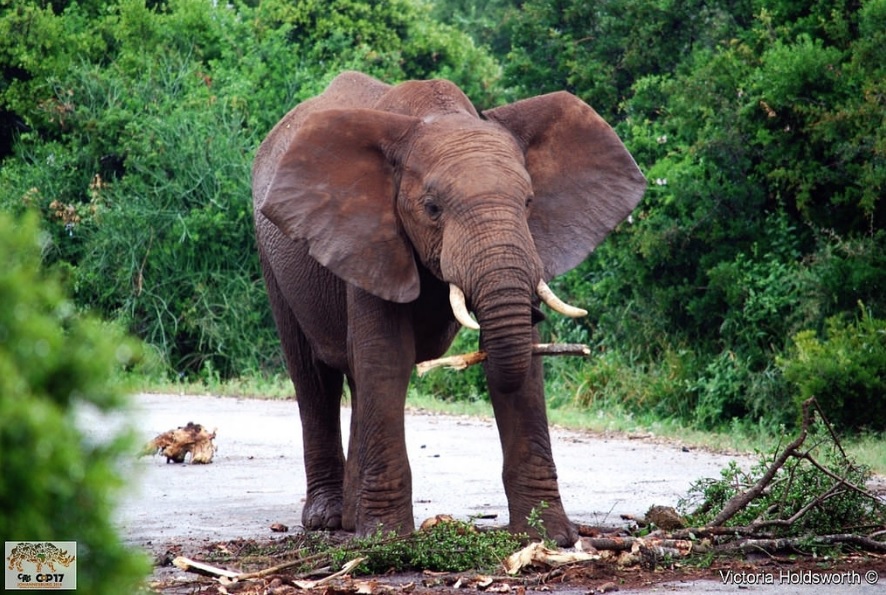
Johannesburg, South Africa | AFP |
The number of African elephants has dropped by around 111,000 in the past decade, a new report released Sunday at the Johannesburg conference on the wildlife trade said, blaming the plummeting figures on poaching.
The revelation, the worst drop in 25 years, came amid disagreement on the second day of the global meet over the best way to improve the plight of Africa’s elephants, targeted for their tusks.
With Namibia and Zimbabwe, wanting to be allowed to sell ivory stockpiles accrued from natural deaths to fund community elephant conservation initiatives, Zimbabwe’s Environment Minister Oppah Muchinguri rejected the “imperialistic policies” of opposing countries, branding them a “clear infringement on the sovereign rights of nations”.
Both Namibia and Zimbabwe boast healthy elephant populations and their desire to sell the stockpiles is supported by South Africa.
“We need to be considerate as we make these decisions,” Muchinguri told a news conference.
“CITES should be there to facilitate us to succeed in our conservation programmes rather than these imperialistic policies,” she added, saying she was speaking on behalf of the southern African region that is home to three-quarters of the savannah jumbo population.
A booming illegal wildlife trade has put huge pressure on an existing treaty signed by more than 180 countries — the Convention on International Trade in Endangered Species (CITES).
Thousands of conservationists and government officials are in Johannesburg for the 12-day gathering, seeking to hammer out new international trade regulations to protect a vast array of different species, with several proposals on whether to tighten or ease controls on the ivory trade on the agenda.
“We have been keeping this ivory for nine years and we’re hoping this moratorium will be lifted so that we are able to sell this ivory or to produce jewellery, artefacts for the benefit of our people,” Muchinguri said.
“We have our sovereign right and we know best what to do, how to utilise our natural resources… we should not be punished, we should be rewarded (for good conservation practices),” she added.
Based on 275 estimates from across the continent, the report released on Sunday by the IUCN conservation group put Africa’s total elephant population at around 415,000, a decline of around 111,000 over the past decade.
‘Neo-colonialism’
It is the first time in 25 years that the group’s African Elephant Status Report has reported a continental decline in numbers, with the IUCN attributing the losses in large part to a sharp rise in poaching.
“The surge in poaching for ivory that began approximately a decade ago –- the worst that Africa has experienced since the 1970s and 1980s –- has been the main driver of the decline,” said IUCN.
IUCN chief Inger Andersen said the numbers showed “the truly alarming plight of the majestic elephant”.
“It is shocking but not surprising that poaching has taken such a dramatic toll on this iconic species,” she said.
Sue Lieberman, vice president of the Wildlife Conservation Society, said the IUCN report was “yet another set of data clearly indicating that governments must take all necessary actions to address the crisis, including closing their domestic elephant ivory markets”.
“It is now up to the CITES parties to carry that momentum forward (and) support the majority of African elephant range countries who are calling for closure of domestic markets,” she said.
“Closing domestic markets will close off opportunities to launder illegal ivory.”
Stephen Mwansa, permanent secretary in Zambia’s Tourism Ministry, however, earlier castigated the proposal to ban domestic trade in ivory.
“How do you come and start regulating the domestic market? That will be extra-territorial,” said Mwansa.
“That’s arrogance of the highest order. It’s tantamount to neo-colonialism and that we can’t accept it,” he told reporters on Saturday.
In 1989 CITES banned international trade in ivory by listing all African elephant populations in its appendix 1.
In 1997 and 2000, however, elephant populations in Botswana, Namibia, South Africa and Zimbabwe were downgraded to a less endangered species status — to allow two sales of ivory stockpiles to Japan and China in 1999 and 2008.
 The Independent Uganda: You get the Truth we Pay the Price
The Independent Uganda: You get the Truth we Pay the Price





